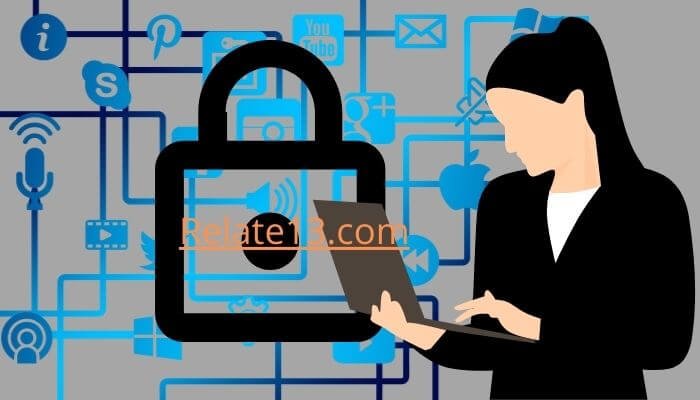Welcome to our guide on how to secure WiFi routers for home. In today’s interconnected world, where WiFi is an essential part of our daily lives, it’s crucial to prioritize the security of our home networks. A secure WiFi router ensures that your internet connection remains private, protects your personal information, and prevents unauthorized access to your network.
In this comprehensive guide, we will explore various steps and best practices to help you safeguard your WiFi router. From setting strong passwords and implementing encryption protocols to updating firmware and enabling firewall protection, we’ll cover everything you need to know to enhance the security of your home WiFi network.
By following these tips and implementing the suggested security measures, you can create a robust defense against potential threats and enjoy a safe and secure browsing experience for you and your family. So, let’s dive into the world of WiFi router security and ensure peace of mind in the digital realm.
Why Securing Your WiFi Router is Important?
Securing your WiFi router is of paramount importance for several reasons:
Protection against unauthorized access: Securing your WiFi router prevents unauthorized individuals from accessing your network. This ensures that only trusted users can connect to your WiFi, reducing the risk of unauthorized data access, theft, or misuse.
Safeguarding personal information: A secure WiFi router helps protect your personal information, such as passwords, financial data, and sensitive documents. By implementing security measures, you reduce the chances of this information falling into the wrong hands.
Preventing network congestion and performance issues: If your WiFi network is left unsecured, unauthorized users may connect to it and consume your bandwidth, leading to slower speeds and network congestion. By securing your router, you maintain optimal network performance for your own devices.
Protecting against malware and cyber threats: Unsecured WiFi routers are vulnerable to various cyber threats, including malware, hacking, and phishing attacks. Securing your router with encryption protocols and firewalls adds an extra layer of protection, reducing the risk of these security breaches.
Ensuring privacy in the digital realm: In an age where digital privacy is increasingly important, securing your WiFi router helps safeguard your online activities from prying eyes. By encrypting your network traffic, you ensure that your online communications remain private and protected.
6 Important Tips to Secure Home Wifi Router
Securing your home WiFi router is essential to protect your network and personal information from potential threats. Here are six important tips to help you enhance the security of your WiFi router:
Change the default administrator credentials
When you set up your WiFi router, it often comes with default login credentials. Change these immediately to a strong, unique username and password. This prevents unauthorized access to your router’s settings and ensures that only you can make changes.

Update firmware regularly
Keep your router’s firmware up to date. Manufacturers release firmware updates to fix security vulnerabilities and improve performance. Regularly check for updates and apply them to ensure your router has the latest security patches.
Enable network encryption
Use a strong encryption protocol, such as WPA2 (or WPA3, if available), to encrypt your WiFi network. Encryption scrambles the data transmitted between your devices and the router, making it difficult for attackers to intercept and decipher your information.

Enable a strong network password
Set a strong, complex password for your WiFi network. Use a combination of upper and lower-case letters, numbers, and special characters. Avoid using easily guessable information such as your name or address. A strong password adds an extra layer of protection against unauthorized access.
Enable firewall protection
Activate the built-in firewall on your router, which helps monitor and filter incoming and outgoing network traffic. This helps block unauthorized access attempts and protects your network from various online threats.
Disable remote management
Disable the remote management feature on your router unless you specifically need it. This prevents remote access to your router’s settings, reducing the risk of unauthorized changes or control by external parties.
You may also like:
- Fix – Internet Keeps Dropping & Disconnecting
- Why won’t my iPad connect to the internet?
- Spectrum Internet Not Working-Fixed
- How To Install Spectrum Internet?
The Wrap-Up
In conclusion, securing your WiFi router is crucial for maintaining the privacy and protection of your home network. By following the tips outlined in this guide, you can significantly enhance the security of your WiFi router and minimize the risk of unauthorized access, data breaches, and other cyber threats.
Remember to change the default administrator credentials, enable network encryption, regularly update the firmware, set a strong network password, activate firewall protection, and disable remote management unless necessary. These steps will create a robust defense against potential security vulnerabilities and ensure a safer and more secure browsing experience for you and your family.
FAQs
Where is the safest place for a WiFi router in your home?
The safest place for a WiFi router in your home is in a central location away from obstructions and interference, such as walls and electronic devices.
How do I configure my router to be more secure?
To configure your router for enhanced security, change the default login credentials, enable network encryption (such as WPA2 or WPA3), update firmware regularly, set a strong network password, activate firewall protection, and disable remote management if not needed.
What is the most secure router from hackers?
There is no single “most secure” router as security depends on various factors like firmware updates, encryption protocols, and user configurations. However, routers from reputable brands with regular security updates and strong encryption protocols like WPA3 are generally considered more secure against hackers.
How do I know if my Internet connection is secure?
To determine if your internet connection is secure, check if you are using a secure protocol (HTTPS) when accessing websites, ensure your WiFi network is password protected and encrypted, use reliable and updated antivirus software, and regularly monitor for any unusual network activity.






